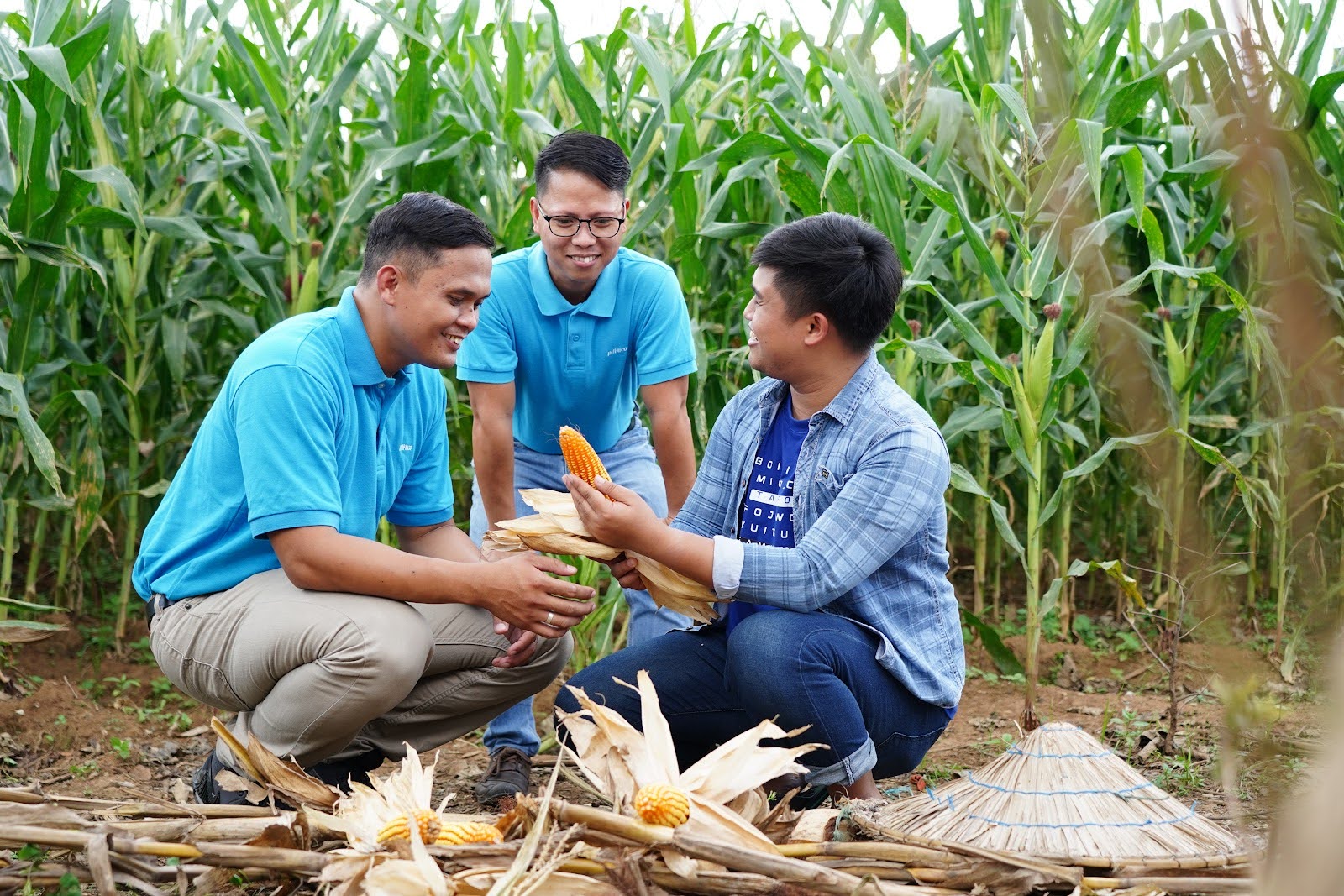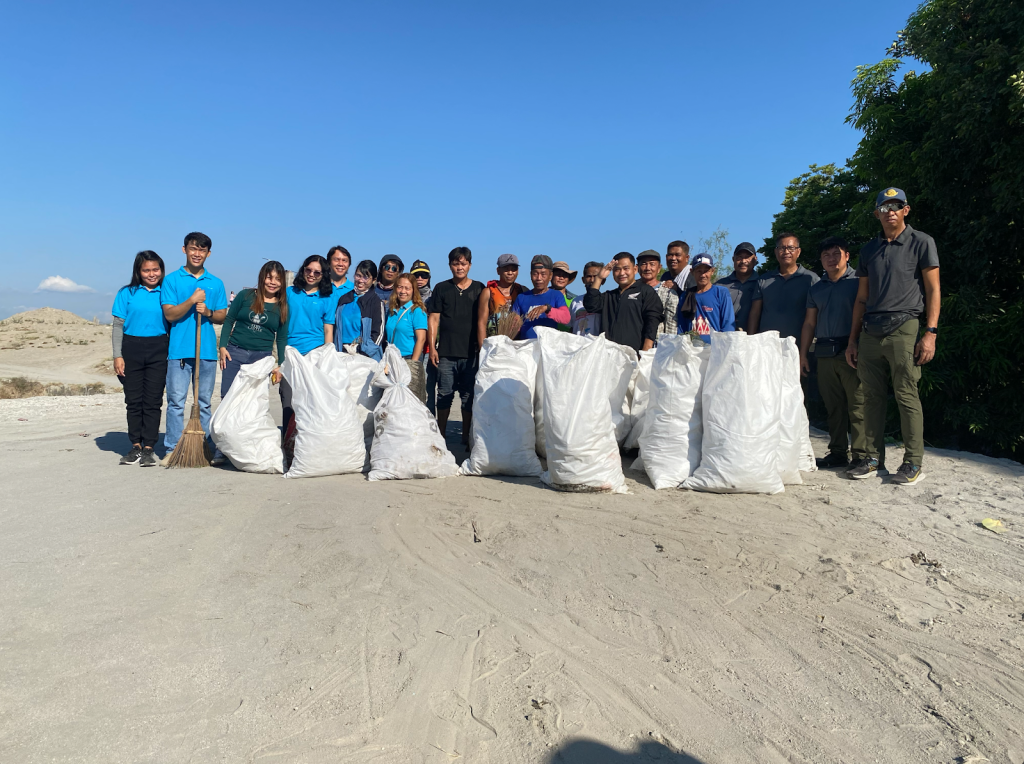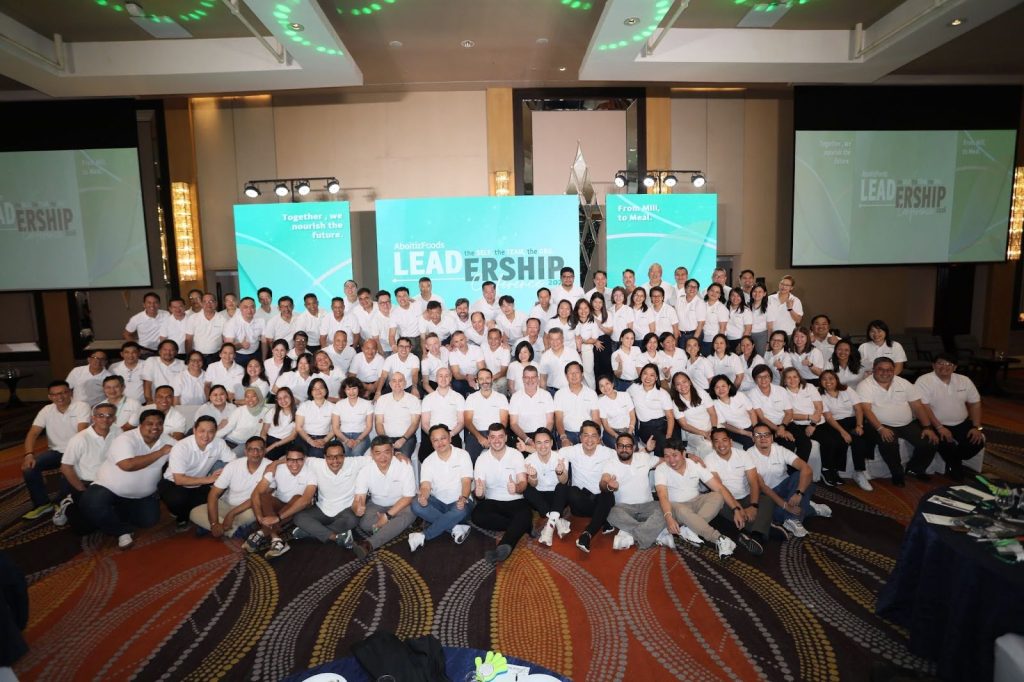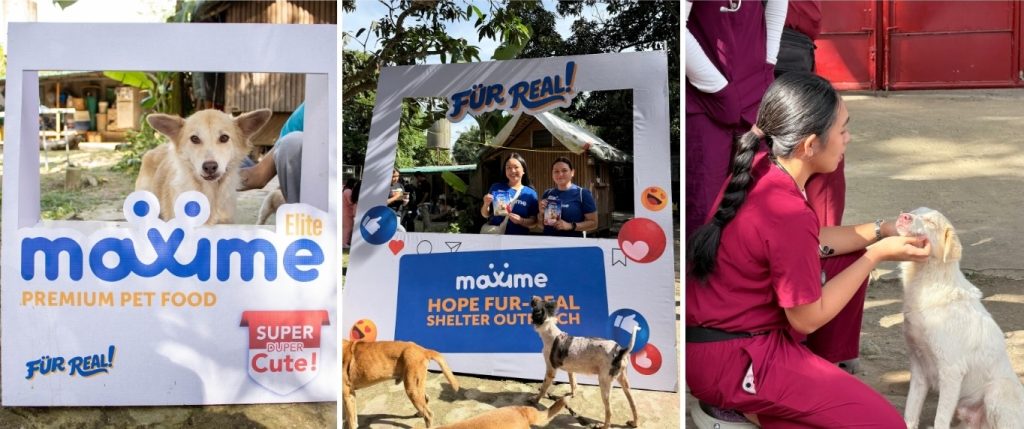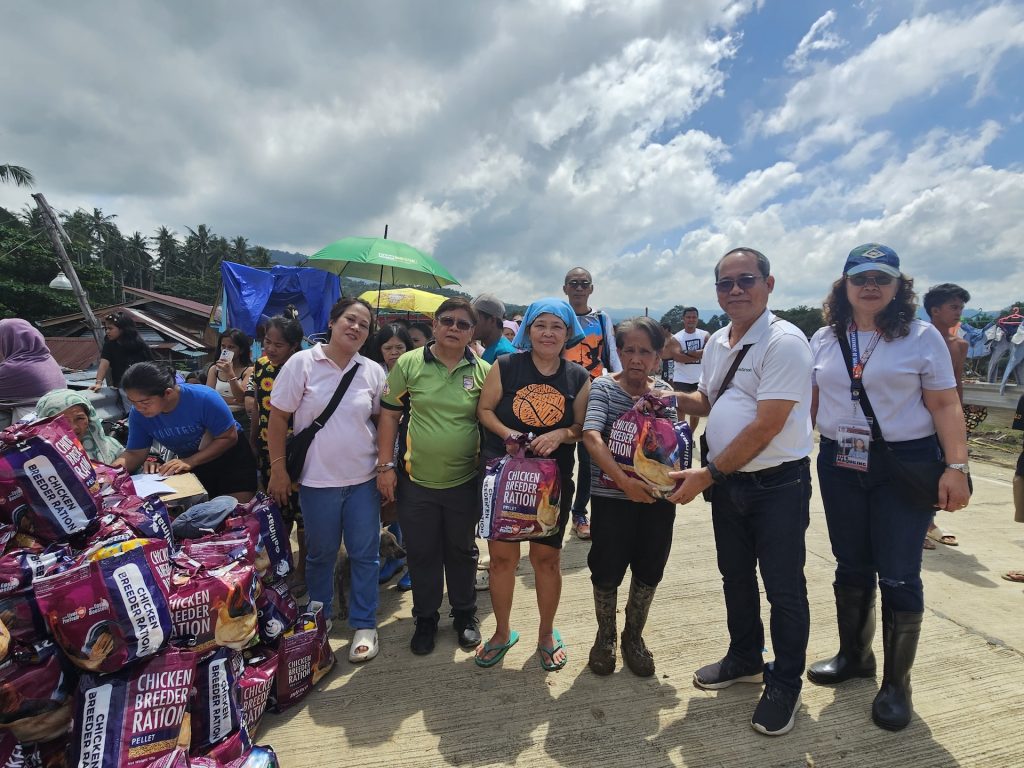Building a More Resilient Food Value Chain with Local Corn Farmers
Pilmico, an Aboitiz Foods company, has long believed that empowered farming communities are essential to building a sustainable and resilient food system. Since 2017, through its inclusive corn sourcing program Project Silk, the company has worked closely with yellow corn farmers across the Philippines to strengthen their capabilities, improve crop quality, and secure reliable market access—enabling them to thrive as entrepreneurs within the country’s expanding agribusiness sector.
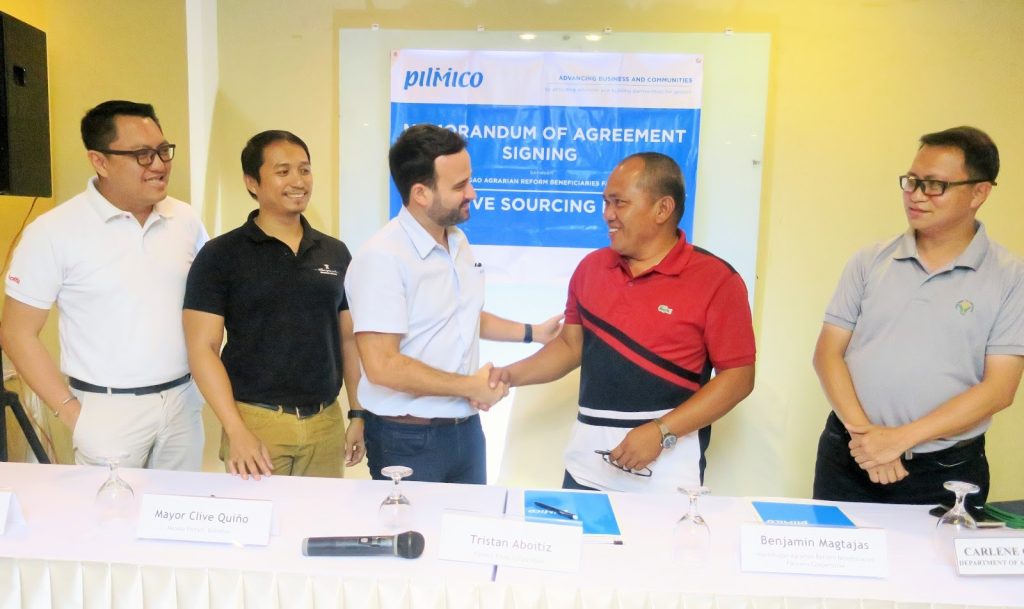
in Bukidnon, marking Pilmico’s first inclusive sourcing partnership with local farmers.
What began with a single cooperative in Bukidnon has grown into one of Aboitiz Foods’ most meaningful and enduring shared-value initiatives. Over the past eight years, Project Silk has supported 2,835 farmers across Bukidnon, Lanao del Norte, Misamis Oriental, and Tarlac, helping increase their revenues by more than 1,500% and generating ₱48.36 million in cumulative corn sales. These results reflect the program’s evolution into a working model of partnership and progress—demonstrating how capability-building, responsible sourcing, and intentional collaboration can uplift livelihoods while strengthening Aboitiz Foods’ mill to meal operations.
Strengthening Communities Through Capability and Confidence
Smallholder farmers often face recurring challenges: limited access to capital, difficulty meeting quality standards, and the absence of a reliable buyer. Project Silk was created to address these barriers in a way that encourages independence—not through one-time assistance, but through skills development and steady market integration that allow farmers to build sustainable enterprises.
Through training in financial literacy, bookkeeping, cooperative leadership, and agribusiness management, farmers have developed the competencies needed to operate viable and competitive farm businesses. Partnerships with CARD, Inc., Go Negosyo, San Isidro College, Xavier University, and the Cooperative Development Authority have further strengthened these capabilities, giving farmers the confidence to plan ahead and explore new opportunities.
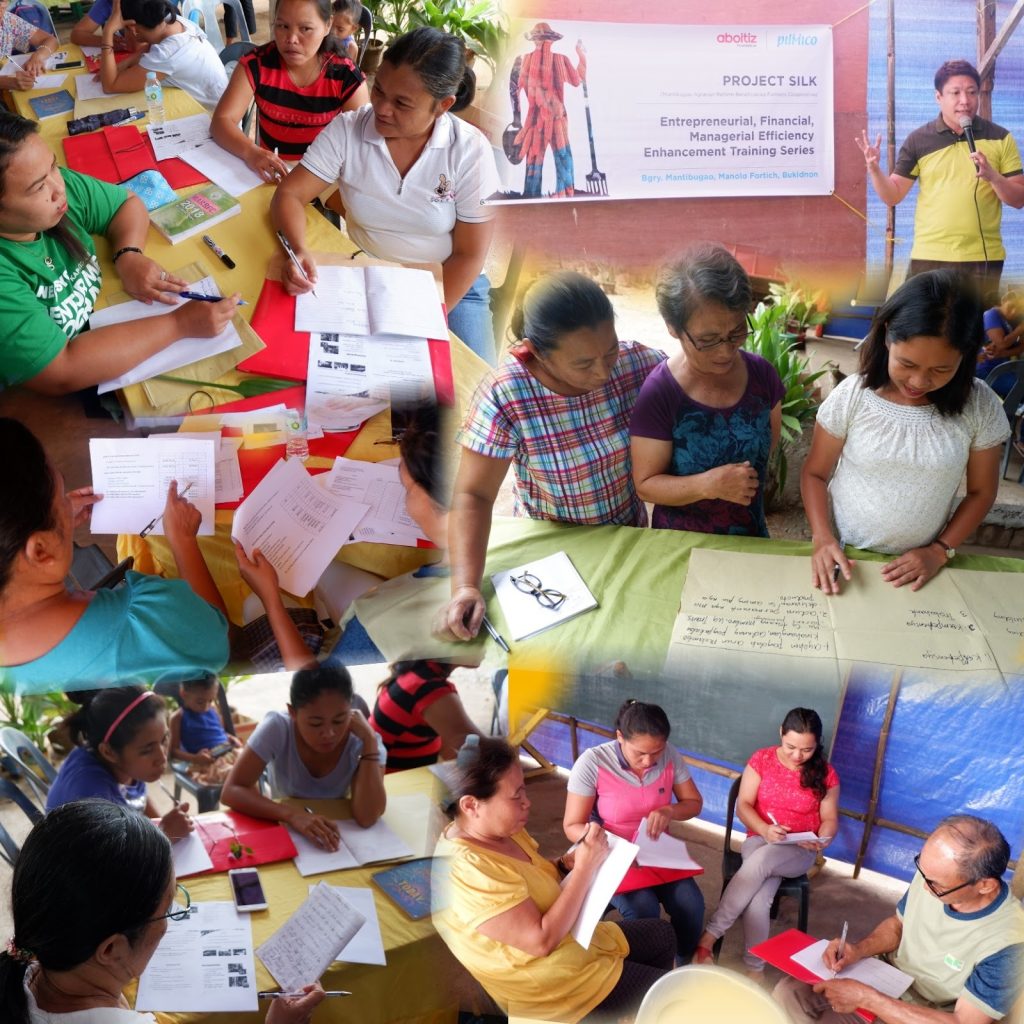
Over time, these efforts have allowed farmer groups to diversify their income streams. Many now operate agri-supply stores, cassava chip lines, vulcanizing shops, and lending services—creating reliable livelihood opportunities even beyond the harvest season. These community-driven enterprises reflect Project Silk’s steady, long-term approach to building resilience and economic stability.
A Holistic, Long-Term Partnership for a Stronger Value Chain
Project Silk is built on the understanding that meaningful progress requires more than providing a market—it requires a long-term partnership that strengthens the entire value chain. While inclusive sourcing remains a core pillar, the program expands far beyond procurement by supporting farmers with the skills, systems, and infrastructure they need to succeed.
A portion of Pilmico’s yellow corn requirements is purchased directly from partner cooperatives, improving their negotiating power and providing a dependable market that encourages consistent production. At the same time, Project Silk’s clustering approach ensures that smallholder farmers who may lack formal documents or resources are grouped with established cooperatives. This gives them access to training, organizational support, and market opportunities that would otherwise be out of reach—creating a more inclusive and equitable pathway for growth.
To reinforce these gains, Pilmico and the City Government of Iligan jointly invested ₱3.5 million in the Project Silk Iligan Post-Harvest Facility. The facility reduces moisture, prevents spoilage, and supports safer storage—allowing farmers to consistently meet feed-mill standards and secure stronger market prices. More importantly, it helps protect farmers from the risks of unpredictable weather, improving crop quality, and reducing losses.
Together, these efforts demonstrate a deliberate, long-term approach to sustainability—one that strengthens people, systems, and infrastructure to build a more resilient agricultural future.
Part of a Larger Sustainability Journey
Project Silk sits alongside Aboitiz Foods’ commitments to responsible production. Recently, the company exceeded the Philippines’ Extended Producer Responsibility (EPR) plastic recovery targets—recovering over 300% of its rigid plastic footprint in 2024. This achievement demonstrates how the organization is strengthening circular economy practices while continuously improving packaging reduction, solar energy use, waste reuse, and community engagement.
Together, these efforts show a unified direction: whether on farms, in feed mills, or in packaging, Aboitiz Foods is committed to responsible production and long-term resilience. Project Silk carries this narrative by proving that sustainability is not a single initiative, but a series of purposeful actions that create meaningful impact over time.

Industry peers have also recognized Project Silk’s steady progress. In 2021, the program received the Sustainable Food and Nutrition Award at the inaugural Europa Awards hosted by the European Chamber of Commerce of the Philippines (ECCP). Most recently, Project Silk earned the Gold Award for Economic Empowerment and Livelihood Development, as well as the Impact Excellence Award—the highest honor—at the American Chamber of Commerce Philippines’ 2nd Corporate Social Impact Awards. These recognitions reflect the meaningful impact created through long-term partnerships and shared value.
A Story of Partnership, Progress, and Purpose
The strength of this initiative lies in the partnerships behind it—farmers, local governments, national agencies, NGOs, academic institutions, and Aboitiz Foods teams who believe that communities flourish when given the right support and opportunities.
As one cooperative leader shared, “Dream come true na makadiretso mi sa dagko nga kumpanya parehas sa Pilmico.” (English translation: “It is a dream come true that we can directly supply big companies like Pilmico.”)
What has been most meaningful is hearing farmers express their desire to pass on what they have learned—to guide new members, support neighboring communities, and help others build the same confidence they gained through the program. This “pay-it-forward” spirit reflects how empowerment creates its own momentum, allowing impact to extend far beyond the program’s formal boundaries.
The success of Project Silk is not defined only by numbers, but by stories like this—stories of restored livelihoods, strengthened communities, and a more resilient agricultural value chain. It is a reminder that transformation happens steadily, through consistent effort and shared purpose. And as Aboitiz Foods continues its journey to sustainably feed Asia’s growth, Project Silk stands as a testament to what is possible when business and communities move forward together.
Frequently Asked Questions:
1. What is Project Silk and what is its main goal?
Project Silk is an inclusive corn sourcing program launched by Pilmico (an Aboitiz Foods company) in 2017. Its main goal is to build a sustainable and resilient food system by working closely with local yellow corn farmers in the Philippines. The program strengthens farmers’ capabilities, improves crop quality, and secures reliable market access, enabling them to thrive as entrepreneurs.
2. Where is Project Silk implemented, and what has been its impact since 2017?
The program began in Bukidnon and has since expanded to support farmers across Bukidnon, Lanao del Norte, Misamis Oriental, and Tarlac. Over eight years, Project Silk has supported 2,835 farmers. Key results include increasing farmer revenues by more than 1,500% and generating ₱48.36 million in cumulative corn sales, demonstrating its success in uplifting livelihoods.
3. How does Project Silk help smallholder farmers overcome common challenges?
Project Silk addresses common challenges like limited capital and difficulty meeting quality standards by providing targeted support. This includes:
- Skills Development: Offering training in financial literacy, bookkeeping, cooperative leadership, and agribusiness management.
- Market Integration: Guaranteeing a dependable market by directly purchasing a portion of Pilmico’s yellow corn requirements from partner cooperatives.
- Clustering: Grouping small farmers with established cooperatives to give them access to training and market opportunities.
4. What infrastructure investment was made to help farmers improve crop quality?
Pilmico and the City Government of Iligan jointly invested ₱3.5 million in the Project Silk Iligan Post-Harvest Facility. This facility helps farmers by reducing moisture, preventing spoilage, and supporting safer storage. This allows the farmers to consistently meet feed-mill standards, secure better market prices, and protect crops from the risks of unpredictable weather.
